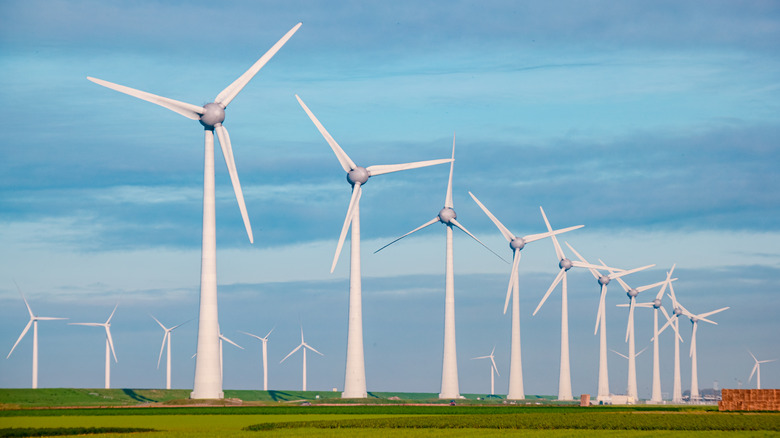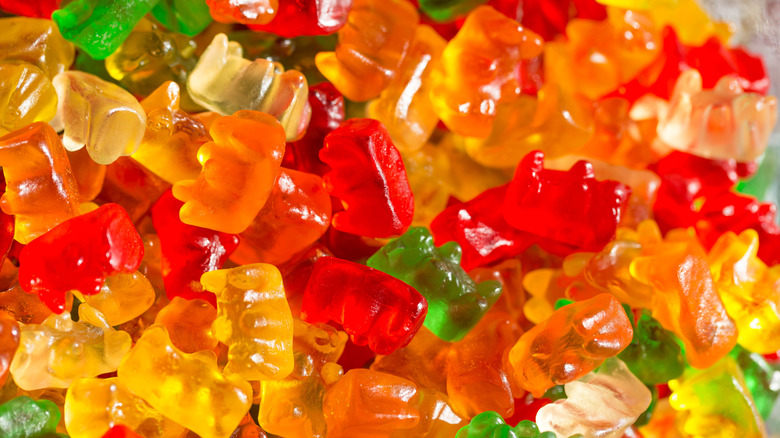Yes, Wind Turbine Blades Can Be Recycled Into Your Favorite Candy
When it comes to providing energy on a large scale, it doesn't get much more sustainable than wind turbines. By inverting the function of a typical fan (which requires an electrical outlet to make wind), solar turbines create mechanical power with their aerodynamic blades, which are attached to rotators that spin around generators without releasing harmful emissions (per Energy.gov).
Even the process of building wind turbines is relatively sustainable. According to Bloomberg, more than 85% of the materials used to make the structures are recyclable. Unfortunately, that doesn't include their fiberglass blades. While a small portion of the thousands of blades removed in the U.S. every year is accepted by landfills, most of them are left with no place to go.
Luckily, there may be a sweet solution on the horizon. Citing intel from the American Chemical Society's fall conference, Food & Wine reports that experts at Michigan State University are working on a new blade material that "combines glass fibers with both synthetic polymers and polymers derived from plant materials." Not only would the new disposable blades be better for the environment, but they would also be distillable into edible potassium. In other words, that bag of gummy bears your future self is ripping open may be the scientific reincarnation of an eco-friendly wind turbine.
From renewable energy to snack energy
Developers claim that the new material could not only be used to make new wind turbine blades but also things like kitchen sinkks and car taillights. Even more exciting to the average environmentally conscious consumer, however, is the material's snack potential. According to John Dorgan, Ph.D. (a professor at Michigan State and one of the leaders behind the development), the material's resin could be broken down into an alkaline solution to produce potassium lactate, which can then be "purified" and used to make edible treats like candy (per Food & Wine).
Dorgan says that he tried these sustainable gummy bears himself and added that the resin can also be used to make sports drinks, like Gatorade. "A carbon atom derived from a plant, like corn or grass, is no different from a carbon atom that came from a fossil fuel," he explains. "It's all part of the global carbon cycle, and we've shown that we can go from biomass in the field to durable plastic materials and back to foodstuffs." The circular economy never tasted so good.

